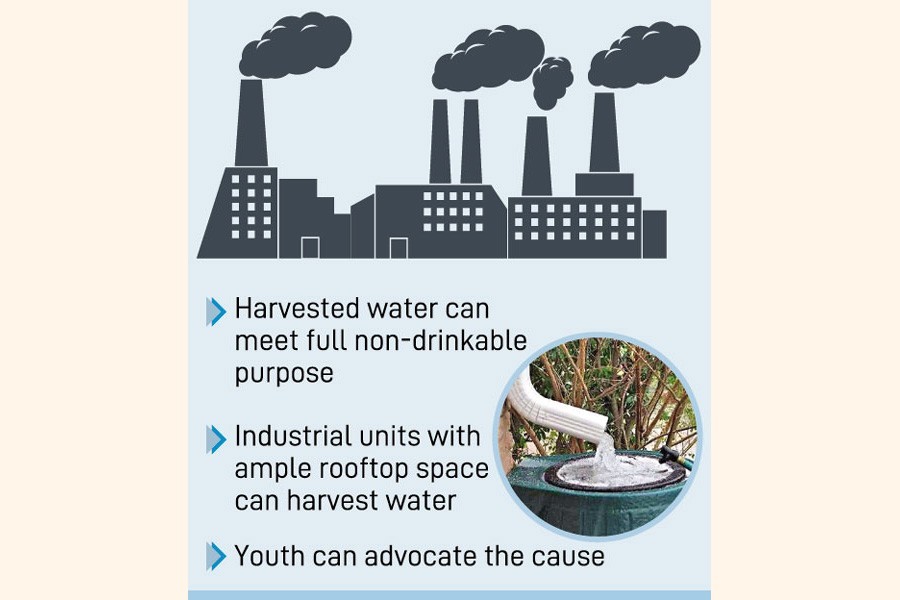Textile and garment factories can meet up to 60-per cent demand for water by harvesting rainwater, according to a feasibility study.
A factory needs to invest Tk 6.5 million to make a reservoir on its premise to harvest rainwater to use mainly for non-drinking purposes, it finds.
The payback period of the investment made in rainwater harvesting would be seven to 10 years, the survey done in 65 ready-made garment (RMG) units also revealed.
"Groundwater level is falling and it will lead to a major scarcity in the country. We found in our study that factories can meet 15-60 per cent of their water demand," Rain Forum secretary Ashraful Alum said on Tuesday.
Harvested rainwater can even meet 100-per cent demand for non-drinkable water in some garment factories which do not have dyeing and washing units, he adds.
Mr Alum presented the findings of the study at a discussion styled 'Industrial rainwater harvesting: a sustainable approach to water management' co-hosted by Bangladesh Garment Manufacturers and Exporters Association (BGMEA), Bangladesh Apparel Youth Leaders Association (BAYLA) and WaterAid.
BGMEA president Faruque Hassan was present as the chief guest at the dialogue at a city hotel, attended by WaterAid country director Hasin Jahan, among others.
WaterAid director Partha Hefaz Shaikh chaired the event while BAYLA president Abrar Hossain Sayem also spoke.
The high volume of water used in the industry is an environmental concern because of their dependency on groundwater which is depleting, speakers said.
It is time to act in ways that protect the long-term sustainability of water supply needed for businesses to grow, they added.
Storage of rainwater is one of the main challenges, they said, suggesting awareness of people to this end.
"BGMEA as a progressive association emphasises sustainable water resource management and is actively encouraging factories to adopt the rainwater harvesting system," Mr Hassan said.
Garment factories do not use much water, he said, adding that factories having dying and washing units need much water.
Bangladesh is the global champion in the green garment factories having 157 Leadership in Environmental and Energy in Design (LEED)-certified garment factories which have been saving average 40 per cent of power and water with improving efficiency, he explained.
Ms Hasin said, "To address the impending water crisis that is depleting groundwater, harvesting rainwater should be everyone's business."
Industries having ample space on the rooftop can easily be used for rainwater harvesting and demonstrate a sustainable solution to growing water needs for businesses, she added.


